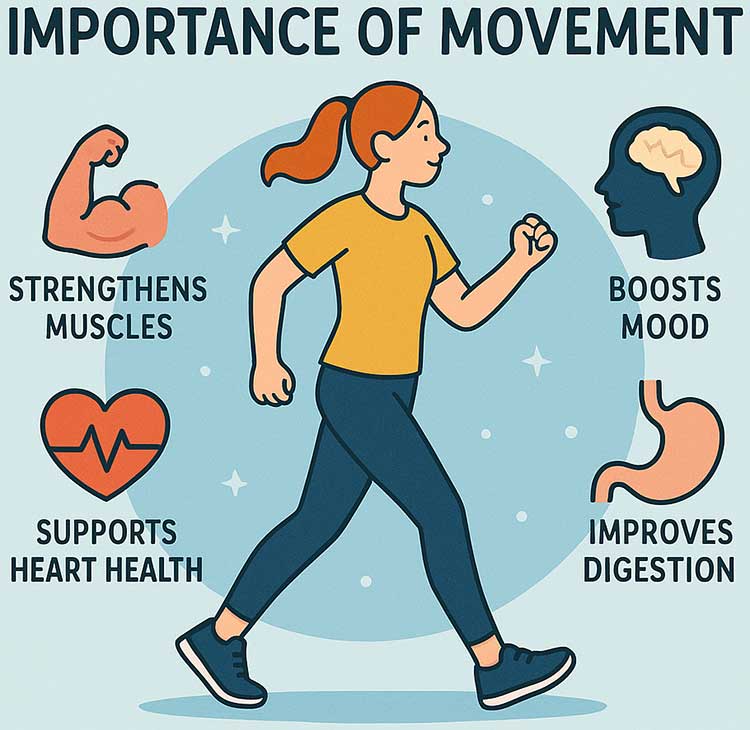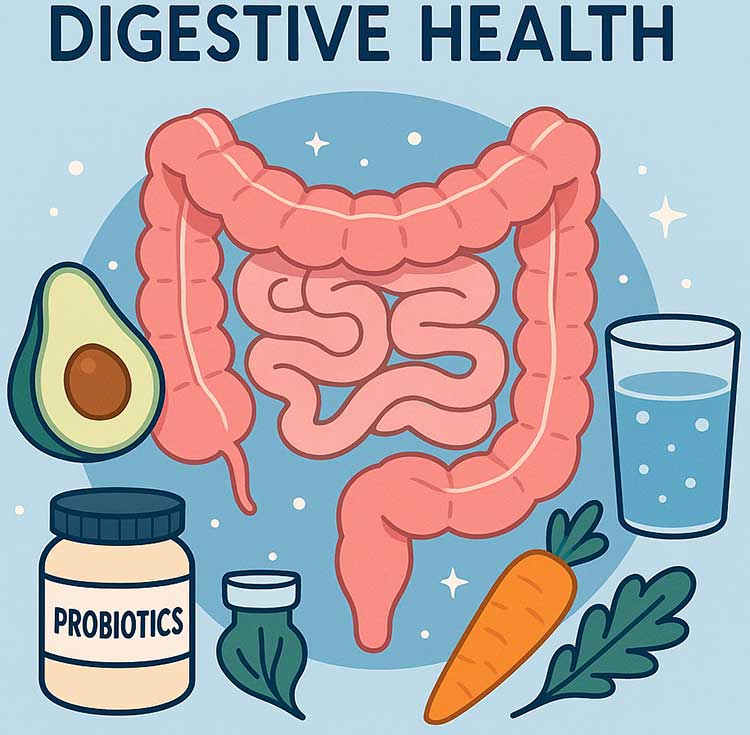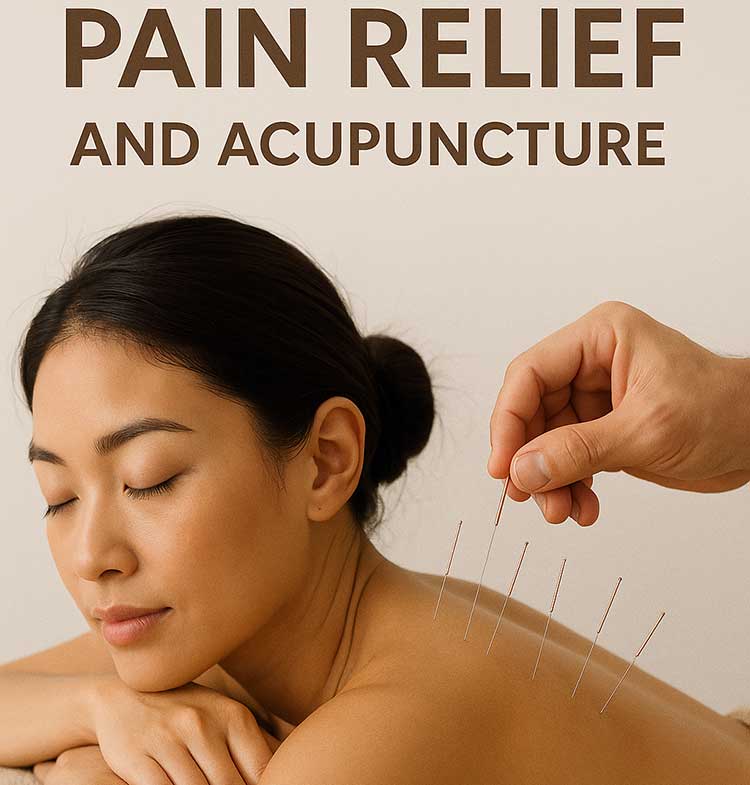Herbs for Better Digestion: Natural Support for a Healthier Gut
Dr. Tatyana's Health and Wellness Blog
Treating the whole person to restore optimal health. Check back often for up-to-date news and information about acupunture and Chinese medicine.
Most Recent Posts ...
Posted on: 2/16/2026
Posted on: 2/2/2026
Posted on: 1/19/2026
Posted on: 1/5/2026
Search All Blog Posts
Blog Post Archive Categories
- Herbs for Better Digestion: Natural Support for a Healthier Gut
- Why Moving Your Body Matters: The Hidden Risks of a Sedentary Lifestyle
- Top 5 Ways to Stay Healthy This Winter and Avoid the Flu
- Acupuncture & Herbal Medicine for Digestive Health: Healing the Center of Your Body
- Acupuncture for Pain Relief: A Natural, Effective Solution
- Acupuncture for Insomnia & Anxiety: Restoring the Calm Within
- Chronic Fatigue and Chronic Inflammation: A Holistic Look Through Western and Eastern
- The Hidden Dangers of Overusing Supplements: Are You Taking More Than You Should?
- The Importance of Exercise and How to Stay Motivated for a Healthier You
- Muscles Become Weak and Stiff
When we sit for long periods, muscles in the back, hips, and legs become tight and weak. Over time, this can lead to poor posture, low back pain, and even difficulty with daily activities like walking upstairs or lifting objects. - Circulation Slows Down
Movement works like a pump for the blood and lymphatic system. Without regular activity, circulation becomes sluggish, which can contribute to swelling in the legs, varicose veins, and a higher risk of blood clots. - Metabolism Slows & Weight Gain Becomes Easier
A sedentary lifestyle reduces the body’s ability to burn calories efficiently. Insulin sensitivity drops, making it easier to gain weight and increasing the risk of developing prediabetes or diabetes. - Increased Inflammation in the Body
Lack of movement promotes inflammation, which is linked to many chronic conditions such as arthritis, heart disease, and even autoimmune issues. - Mood and Energy Levels Decline
Movement boosts endorphins—our natural “feel good” chemicals. Without activity, stress increases, sleep quality declines, and feelings of anxiety or depression can become more intense. - Reduced Bone Strength
Bones need gentle stress from walking and exercise to stay strong. Without movement, bone density decreases, raising the risk of osteoporosis, especially as we age. - Take 5-Minute Movement Breaks
Stand up, stretch, or walk around every 30–60 minutes. Even small breaks improve blood flow and reduce stiffness. - Add Gentle Exercises
Yoga, tai chi, qigong, or light stretching help release tension, support circulation, and calm the mind. - Walk More Throughout the Day
You don’t need a long workout. Three short 10-minute walks can improve digestion, boost mood, and support your heart. - Use Your Environment
Take the stairs, park farther away, or choose a short walking route during lunch. Small habits build big results. - Incorporate Movement Into Daily Tasks
Do light housework, garden, play with your kids or pets, or take phone calls while standing or walking. - Try Strength Exercises Twice a Week
Body-weight movements like squats, wall push-ups, or resistance bands help maintain muscle tone and support joint health.
Herbs for Better Digestion: Natural Support for a Healthier Gut

Digestive discomfort is one of the most common concerns people experience — bloating, gas, constipation, reflux, or a heavy feeling after meals can quickly affect energy, mood, and overall health. In many cases, digestion struggles are not caused by a single problem, but by stress, poor gut motility, inflammation, enzyme imbalance, or disrupted gut bacteria. Herbs have been used for centuries to gently support digestion and help restore balance in the digestive system.
Why Digestion Matters
Digestion is more than just breaking down food. A healthy digestive system is essential for nutrient absorption, immune function, hormone balance, and even mental clarity. When digestion is weak or sluggish, the body may not fully absorb vitamins and minerals, leading to fatigue, cravings, inflammation, and long-term health issues.
Herbal medicine works by supporting the body’s natural digestive processes rather than suppressing symptoms. Many digestive herbs stimulate digestive secretions, improve gut motility, reduce inflammation, and calm the nervous system — all key components of healthy digestion.
Key Herbs That Support Digestion
Ginger - Ginger is one of the most well-known digestive herbs. It helps stimulate gastric motility, reduces nausea, supports stomach emptying, and can ease bloating and cramping. Ginger is especially helpful for sluggish digestion and a feeling of heaviness after meals.
Peppermint - Peppermint relaxes the smooth muscles of the gastrointestinal tract, making it useful for gas, bloating, and abdominal discomfort. It can be particularly beneficial for people with irritable bowel symptoms, helping reduce spasms and pain.
Chamomile - Chamomile soothes the digestive tract and helps calm inflammation. It also supports the nervous system, making it a great option when digestive issues are linked to stress or anxiety. Chamomile can help with mild cramping, reflux, and tension-related digestive symptoms.
Fennel - Fennel seeds have carminative properties, meaning they help reduce gas and bloating. They support digestion by easing intestinal spasms and improving motility. Fennel is commonly used after meals to prevent discomfort.
Licorice (DGL) - Deglycyrrhizinated licorice (DGL) supports the lining of the stomach and intestines. It is often used for reflux, heartburn, and irritation of the digestive tract by promoting mucosal healing and reducing inflammation.
Artichoke - Artichoke supports bile production, which is essential for fat digestion. It can help reduce bloating, support liver function, and improve overall digestive efficiency, especially after heavier meals.
Herbs and the Gut–Brain Connection
Digestion is closely connected to the nervous system. Stress can slow digestion, reduce enzyme production, and worsen symptoms like bloating or constipation. Many digestive herbs also have calming properties that support the gut–brain connection. By reducing stress and improving nervous system regulation, herbs help digestion function more smoothly.
A Holistic Approach to Digestive Health
Herbs work best when combined with mindful eating, balanced nutrition, adequate hydration, and stress management. In functional and integrative medicine, digestive herbs are often selected based on individual symptoms and underlying imbalances rather than a one-size-fits-all approach.
When digestion is supported naturally, many people notice improvements not only in gut comfort, but also in energy, mood, sleep, and overall well-being.
Digestive symptoms are your body’s way of asking for support. Herbs offer a gentle, time-tested approach to improving digestion and restoring balance from within. With the right guidance and personalized care, digestive health can improve naturally and sustainably.
Why Moving Your Body Matters: The Hidden Risks of a Sedentary Lifestyle

In our modern world, it has become incredibly easy to spend long hours sitting—working on a computer, driving, scrolling through our phones, or relaxing on the couch. While rest is important, too much stillness can slowly impact the body in ways many people don’t realize. Movement is not just about staying in shape; it’s an essential part of keeping every system in the body healthy and functioning well.
Below are practical tips to stay active, along with what actually happens inside the body when we fall into a sedentary lifestyle.
What Happens When You Don’t Move Enough
Simple Ways to Add More Movement Into Your Day
The Bottom Line
Movement is not optional—it’s one of the most powerful forms of medicine. You don’t need intense workouts or long hours at the gym. Even small, consistent steps can transform your health, boost your energy, and prevent the long-term effects of a sedentary lifestyle.
Your body is designed to move. When you honor that design, you support your mood, your metabolism, your circulation, and your overall well-being.
Start today with something simple—your future self will thank you.
Acupuncture & Herbal Medicine for Digestive Health: Healing the Center of Your Body

Digestive health is the foundation of overall wellness. In Traditional Chinese Medicine (TCM), the digestive system is considered the body’s energetic center — the place where we create vitality, nourishment, strength, and emotional balance. When the digestive system is functioning well, we feel energized, grounded, clear-minded, and emotionally stable. But when it becomes imbalanced, it can affect every part of our life.
Many people live with chronic digestive symptoms without realizing how deeply they impact their energy, sleep, mood, hormones, and immune system. Bloating, constipation, diarrhea, indigestion, acid reflux, low appetite, or food sensitivities are not “normal” — they’re signals from the body that the digestive system needs support. Acupuncture and herbal medicine offer gentle yet powerful tools to restore harmony to the gut and help the entire body function more smoothly.
In TCM, digestion is governed primarily by the Spleen and Stomach, which work together to transform food into energy (Qi) and deliver nourishment to every organ. When these systems become weakened by stress, poor diet, cold foods, overthinking, irregular meals, or emotional strain, their ability to process food decreases. This can lead to symptoms like bloating after meals, fatigue, heaviness in the body, loose stools, brain fog, or sugar cravings. Acupuncture works by strengthening the digestive organs, improving motility, reducing inflammation, and regulating the nervous system, which plays a major role in gut function.
One of the reasons acupuncture is so effective for digestive health is its ability to calm the sympathetic nervous system — the fight-or-flight mode that shuts down digestion. Many patients unknowingly live in a state of chronic stress. The stomach tightens, the intestines slow down, and the body struggles to break down food. With acupuncture, the body shifts into parasympathetic mode, also known as “rest and digest.” In this state, the digestive organs receive more blood flow, digestive enzymes increase, and the body naturally begins to heal.
Herbal medicine adds another layer of support by addressing the specific imbalances causing digestive problems. For example, warming herbs like ginger and dried orange peel support sluggish digestion and bloating, while bitter herbs can regulate acid reflux and help food move downward properly. For people with IBS, alternating constipation and diarrhea, or stress-related gut issues, customized herbal formulas work alongside acupuncture to soothe inflammation, support the microbiome, regulate the bowels, and calm the nervous system. Each formula is tailored to the individual's presentation — because in TCM, there is no one-size-fits-all approach.
Digestion is deeply connected to emotions. Worry, overthinking, and stress are known in TCM to weaken the Spleen, while frustration and unprocessed anger can stagnate the Liver, creating symptoms like bloating, acid reflux, or nausea. Acupuncture harmonizes these systems so emotions don’t disrupt digestion as strongly. Patients often report that as their gut improves, their mood improves as well — a reminder of the powerful gut-brain connection validated by both Eastern and Western medicine.
Healing the digestive system is not simply about treating symptoms — it’s about restoring the root of your body’s vitality. When your gut functions well, everything improves: energy levels rise, sleep becomes deeper, inflammation decreases, and hormones naturally balance. This is why so many chronic conditions improve when digestion is treated. TCM has understood this for thousands of years: a healthy gut is the foundation of a healthy life.
If you’ve been struggling with digestive issues — whether it’s IBS, bloating, reflux, constipation, chronic stress digestion, or unexplained discomfort — acupuncture and herbal medicine offer a gentle and effective path back to balance. Your digestive system wants to heal; it simply needs the right support.
If you’re ready to strengthen your digestive health and feel like yourself again, I’m here to help.
Schedule an appointment at Family Acupuncture & Health to begin your healing journey.

